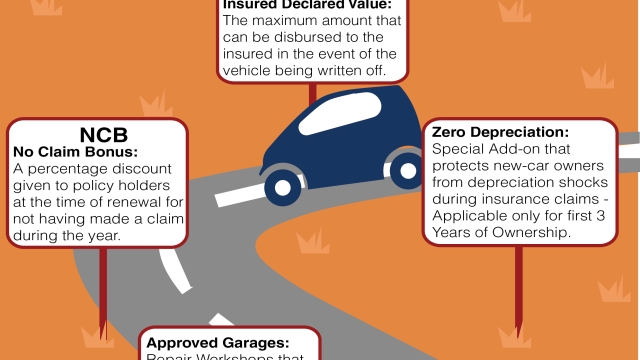As the insurance industry continues to evolve, so too must the marketing strategies that drive its growth. In a landscape that is becoming increasingly competitive, businesses within the insurance sector must find innovative ways to capture the attention of their target audience. This article delves into the realm of insurance marketing, exploring how industry professionals can unleash the power of effective strategies to revolutionize their approach and stay ahead in a rapidly changing market.
In today’s digital age, where consumers are constantly bombarded with advertisements and information, traditional marketing tactics no longer suffice. Insurance companies must adapt to new technologies and consumer preferences to create compelling campaigns that resonate with their audience. This means leveraging strategies that emphasize personalized experiences, engaging content, and seamless integration across various platforms.
One key aspect of insurance marketing lies in understanding the needs and wants of the target audience. By conducting thorough market research and collecting customer data, insurers can gain valuable insights into the preferences, pain points, and behavior patterns of potential policyholders. This knowledge serves as a foundation for creating targeted messaging and developing tailored solutions that address the unique challenges faced by individuals, families, and businesses.
Stay tuned as we explore the dynamic world of insurance marketing and uncover the strategies that can transform your business. From utilizing social media and influencer collaborations to implementing data-driven approaches and optimizing customer experiences, this article aims to equip you with the knowledge and tools to propel your insurance marketing efforts to new heights. Join us on this exciting journey as we delve into the strategies that can revolutionize the way you connect with your audience and drive sustainable growth in the ever-evolving insurance landscape.
1. The Evolution of Insurance Marketing
Over the years, insurance marketing has transformed significantly, adapting to changing consumer behaviors and technological advancements. In today’s competitive landscape, insurance companies are constantly seeking innovative strategies to attract and retain customers. This evolution has been driven by a deep understanding of customer needs and preferences, as well as the desire to stand out in a crowded market.
Traditional methods of insurance marketing relied heavily on cold calls, door-to-door sales, and advertising in print media. However, the rise of the internet and digital platforms has revolutionized the way insurance products are marketed. Insurance companies now have the ability to reach a wider audience through targeted online advertisements, social media campaigns, and personalized email marketing.
One of the key aspects of this evolution is the focus on customer-centric marketing. Insurance companies are increasingly investing in data analytics and market research to gain insights into customer preferences, buying behaviors, and pain points. This enables them to tailor their marketing efforts and create personalized experiences that resonate with individual customers.
Furthermore, the rise of digital platforms has opened up new avenues for insurance companies to engage with their customers. Mobile apps, chatbots, and online portals provide convenient access to insurance information and services, making it easier for customers to interact with their insurers. This not only enhances customer satisfaction but also allows insurance companies to gather valuable feedback for continuous improvement.
In conclusion, the evolution of insurance marketing has been driven by the need for customer-centric approaches and the utilization of digital technologies. By understanding customer needs and leveraging new marketing channels, insurance companies can revolutionize their strategies and stay ahead in an increasingly competitive market.
2. Embracing Digital Channels
The insurance industry is no stranger to the digital revolution. With the increasing reliance on technology in our everyday lives, it has become imperative for insurance companies to embrace digital channels in their marketing strategies. By doing so, they can tap into the vast potential of reaching a wider audience and staying ahead in this competitive landscape.
One of the key advantages of leveraging digital channels for insurance marketing is the ability to personalize communication. Through data analytics and customer insights, insurers can target their messaging to specific demographics, tailoring it to resonate with individual needs and preferences. This level of customization not only enhances customer engagement but also improves the likelihood of converting leads into loyal policyholders.

Furthermore, digital channels offer unparalleled convenience and accessibility for both insurers and customers. Online platforms and mobile applications allow for seamless transactions, from obtaining quotes to purchasing policies. This eliminates the need for physical paperwork and enables customers to compare options and make informed decisions at their own convenience. For insurance companies, digital channels streamline administrative processes, reducing inefficiencies and costs associated with traditional marketing methods.
Lastly, embracing digital channels opens doors to innovative approaches in insurance marketing. Social media platforms, for instance, provide a unique space for companies to engage with their audience in real-time, creating interactive and shareable content. Additionally, the rise of artificial intelligence and chatbot technologies has made it possible for insurers to offer personalized assistance and support round the clock. These advancements not only enhance the customer experience but also improve efficiency and reduce response times.
Insurance For Funeral Homes And Crematoriums
In conclusion, embracing digital channels is essential for insurance companies looking to revolutionize their marketing strategies. Through personalization, convenience, and innovation, these channels empower insurers to reach a wider audience, enhance customer engagement, and stay ahead in a rapidly evolving industry. As technology continues to advance, it is crucial for insurance marketers to embrace the power of digital channels to remain competitive and thrive in the modern landscape.
3. Innovative Strategies for Targeting the Millennial Market
Utilizing Social Media Platforms
To effectively reach the millennial market, insurance companies must harness the power of social media. With millennials being highly active on platforms such as Facebook, Instagram, and Twitter, it is crucial to leverage these channels for targeted marketing efforts. By creating engaging content, sharing informative videos, and fostering online communities, insurers can establish a strong presence and connect with millennials on their preferred platforms.Embracing Influencer Marketing
Influencers hold significant sway over the millennial demographic, making influencer marketing a valuable strategy for insurance companies. Collaborating with influencers who have a strong following within the millennial community can help generate brand awareness and trust. By partnering with influencers who align with their values and goals, insurance marketers can effectively reach and resonate with the millennial market.Offering Personalized Customer Experiences
Millennials value personalized experiences, and insurance providers can capitalize on this by tailoring their marketing strategies accordingly. By leveraging data analytics and customer insights, insurers can offer targeted products and services that meet millennials’ unique needs and preferences. This includes implementing omni-channel experiences, providing intuitive mobile apps, and offering flexible coverage options that align with millennial lifestyles.
Remember, understanding the millennial market is key to revolutionizing insurance marketing strategies. By embracing these innovative approaches, insurance companies can better engage with millennials and establish lasting relationships that drive growth and success in the industry.

